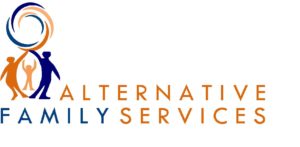Addressing Common Misconceptions About Foster Care
Unfortunately, there are many misconceptions about foster care that are widely held across the United States. To help break down the most prevalent foster care myths and misconceptions and provide the real story about the foster care system in California and nationally, we turned to the experts, chiefly the staff here at AFS. Keep reading to learn more about foster kids, foster families, biological parents and so much more.
Shining a Light on the 7 Most Common Myths About Foster Care
Based on conversations with experts at AFS and across the country, here is more information about seven of the most common myths about foster care and its impact on biological family members, children and teens.
![[Blog] Addressing Common Misconceptions About Foster Care](https://www.afs4kids.org/wp-content/uploads/2022/05/shutterstock_284569964-scaled.jpg)
Unfortunately, there are many misconceptions about foster care that are widely held across the United States. To help break down the most prevalent foster care myths and misconceptions and provide the real story about the foster care system in California and nationally, we turned to the experts.
Myth #1: All children in foster care are bad, juvenile delinquents, or runaways.
“Child Welfare Services intervene with children and families due to child abuse and neglect, domestic violence, utero drug exposure, alcohol exposure, parental substance abuse, parental criminal activity and commercial sexual exploitation and pornography. These family issues caused trauma, which is displayed in the child’s behavior.” – Ms. Alma Woodard, AFS Home Approver/Trainer.
“The most common misconception I hear about my clients is they are hoodlums. Often when people hear foster teens, they think juvenile delinquent. I have spent my entire career at AFS educating the community that these are regular young people who are incredibly resilient, and just need some extra love.” – Patty Cala, Director of Transition Age Youth Services for AFS’s Marin ILP/THP+ program.
“The idea that these children are ‘bad’ or worse ‘unadoptable’ could not be further from the truth. Children enter foster care through no fault of their own because of abuse and neglect, and frequently experience countless layers of trauma. The unfortunate reality is that many of these children are not returning to their birth families because it is not safe,” Rita Soronen, President & CEO of the Dave Thomas Foundation for Adoption, has noted. “With nowhere to turn for support, many are at a higher risk of negative outcomes, such as homelessness, unemployment and early parenting, all of which can happen to a child who cannot go home and simply say, ‘I need some help.’ No child is unadoptable, they just aren’t adopted. Every child needs and deserves the support of a family and caring adults to address the issues they experienced going into care, while they were waiting to be adopted and after the adoption is finalized.”
Myth #2: Child Protective Services and the foster care system like to break up families.
“Foster care is actually a useful system to help children and their families get back on track with their lives,” says Tonia Elliott, Caseworker out of the AFS Vallejo office. “Foster parents and their experience offer safe places for youth to regain something that was lost within their family experiences.”
“The goal of the child welfare system and the foster care agency is to provide safety, permanency and well-being for children and their biological families.” – Ms. Alma Woodard, AFS Home Approver/Trainer.
Myth #3: Families become resource parents just for the money.
“Foster kids are not just housed; AFS prides itself on finding ways to support and foster our kids’ interest.” – Leslie Matthews, Program Director of the AFS Sacramento office.
“Resource families are responsible to provide a loving, nurturing, and safe environment for each child. Families are part of the professional team; they are to recognize the rights of foster children which are critical to ensuring their overall well-being. They are to adhere to the reasonable prudent parent standard. Resource families do not get paid, but they do get reimbursed for each child through monthly financial assistance. In addition to clothing and general allowance, the monthly stipend provides support for the child’s monthly living expenses.” – Ms. Alma Woodard, AFS Home Approver/Trainer.
Myth #4: Only U.S. citizens are allowed to be fostering children
“A big misconception in the Latino community is that families need to be U.S. Citizens, which is not true.” – Samuel Cruz, AFS Home Approver.
Myth #5: Single parents can’t become foster parents
There is a myth “that families must be composed of a married heterosexual couple. Single people and same sex couples, among others, can become foster parents.” – Samuel Cruz, AFS Home Approver.
Myth #6 You need to own your home in order to accept foster care placements.
“The fact is that many [fostering] families rent. They are not home owners.” – Samuel Cruz, AFS Home Approver.
Myth #7: People in foster care (foster parents, social workers, etc.) are saints.
“We’re normal people doing really hard things together!” – Brittany Ratiani, Clinical Supervisor for the AFS Sonoma County Mental Health Program.
Are You Ready to Help a Child in Foster Care?
If you have any lingering questions or concerns about foster care, please don’t hesitate to reach out to us! Call AFS at (800)-300-1022 or email us directly at info@afs4kids.org.
